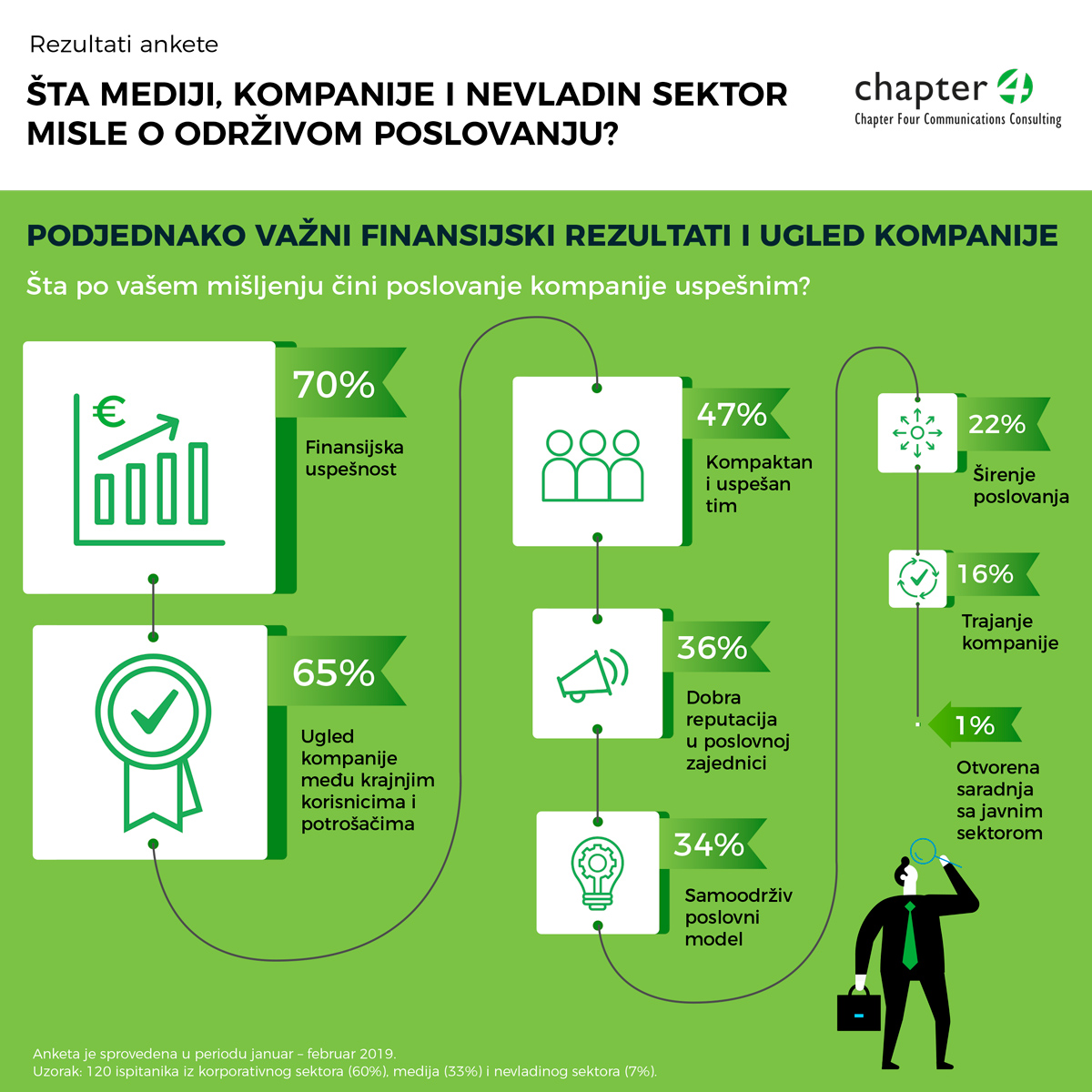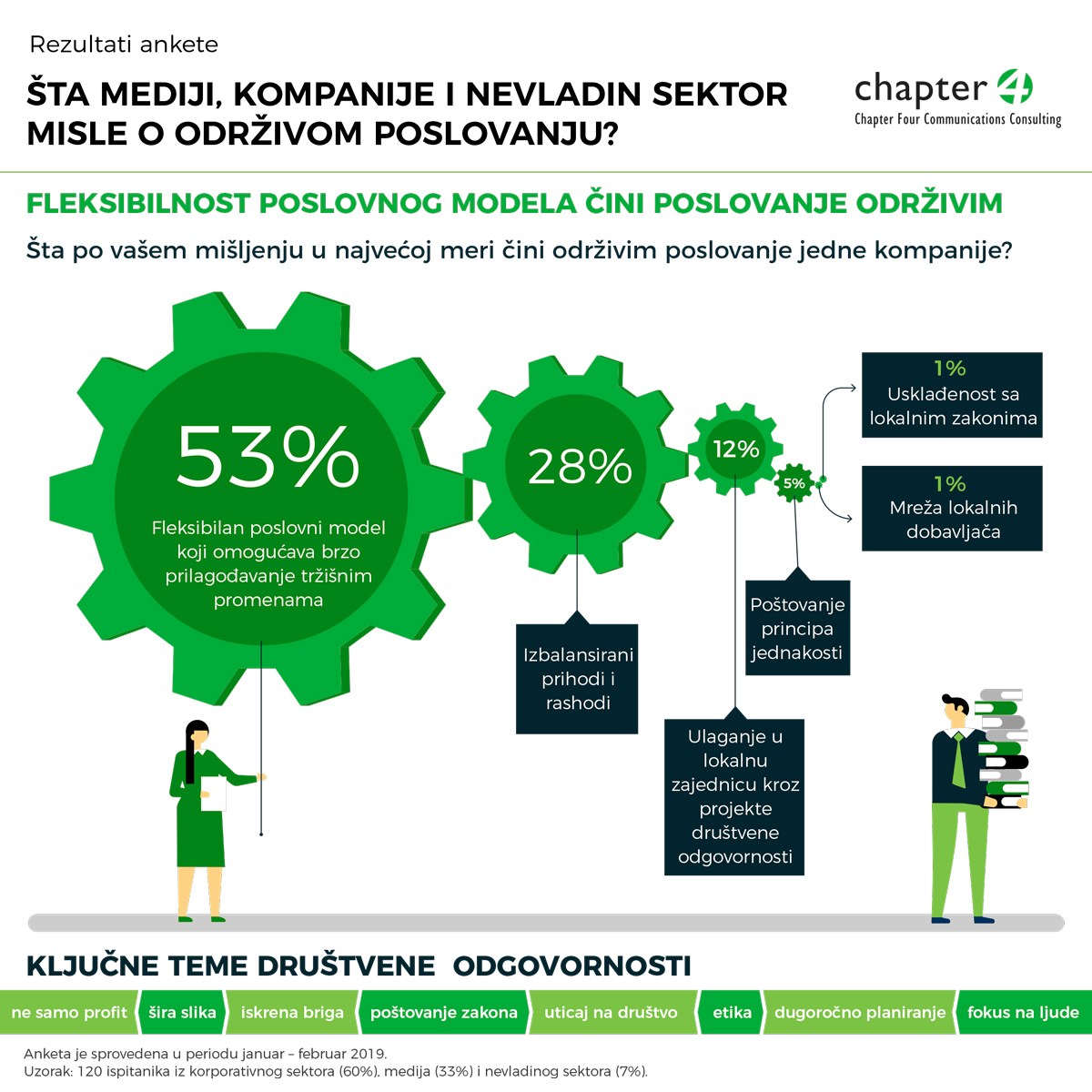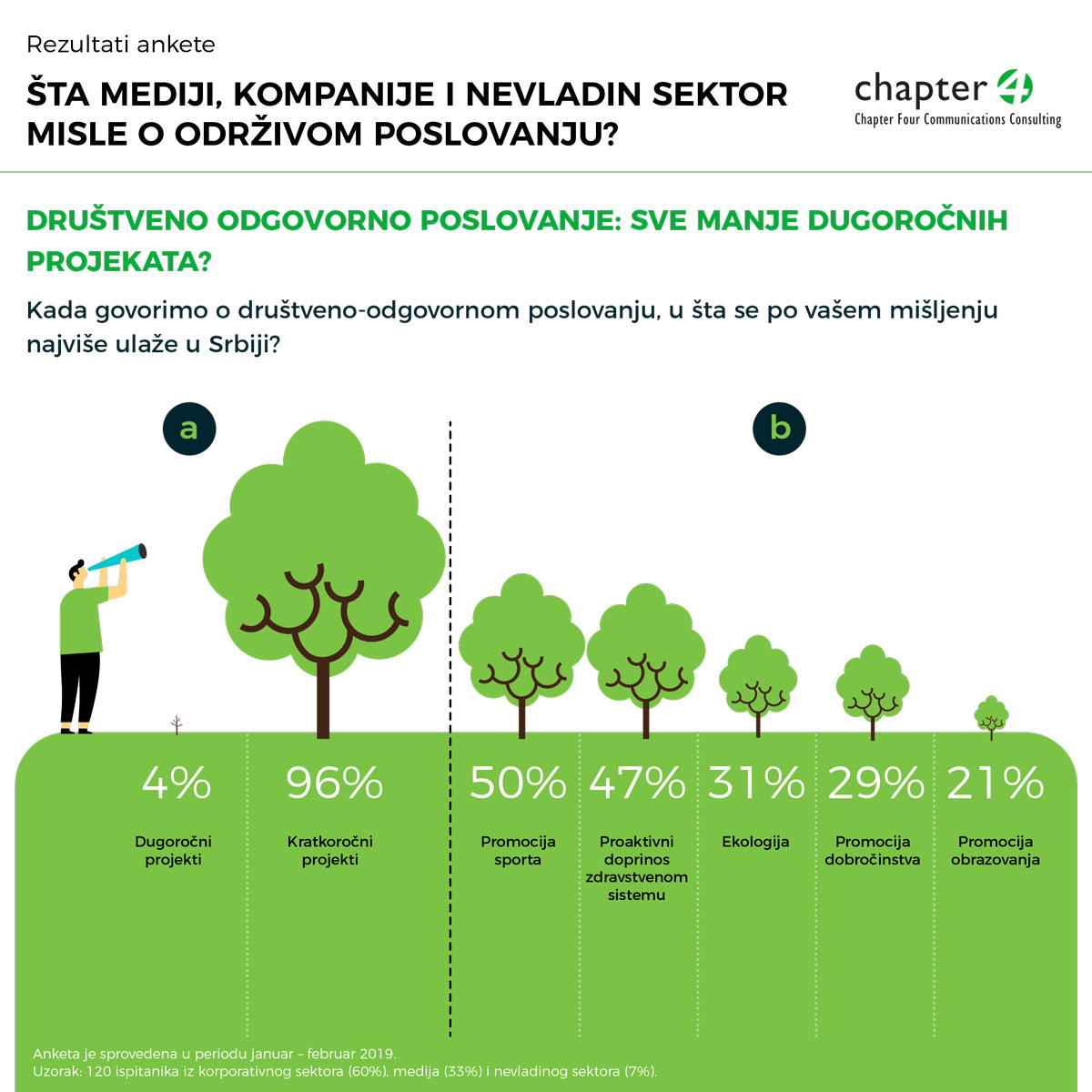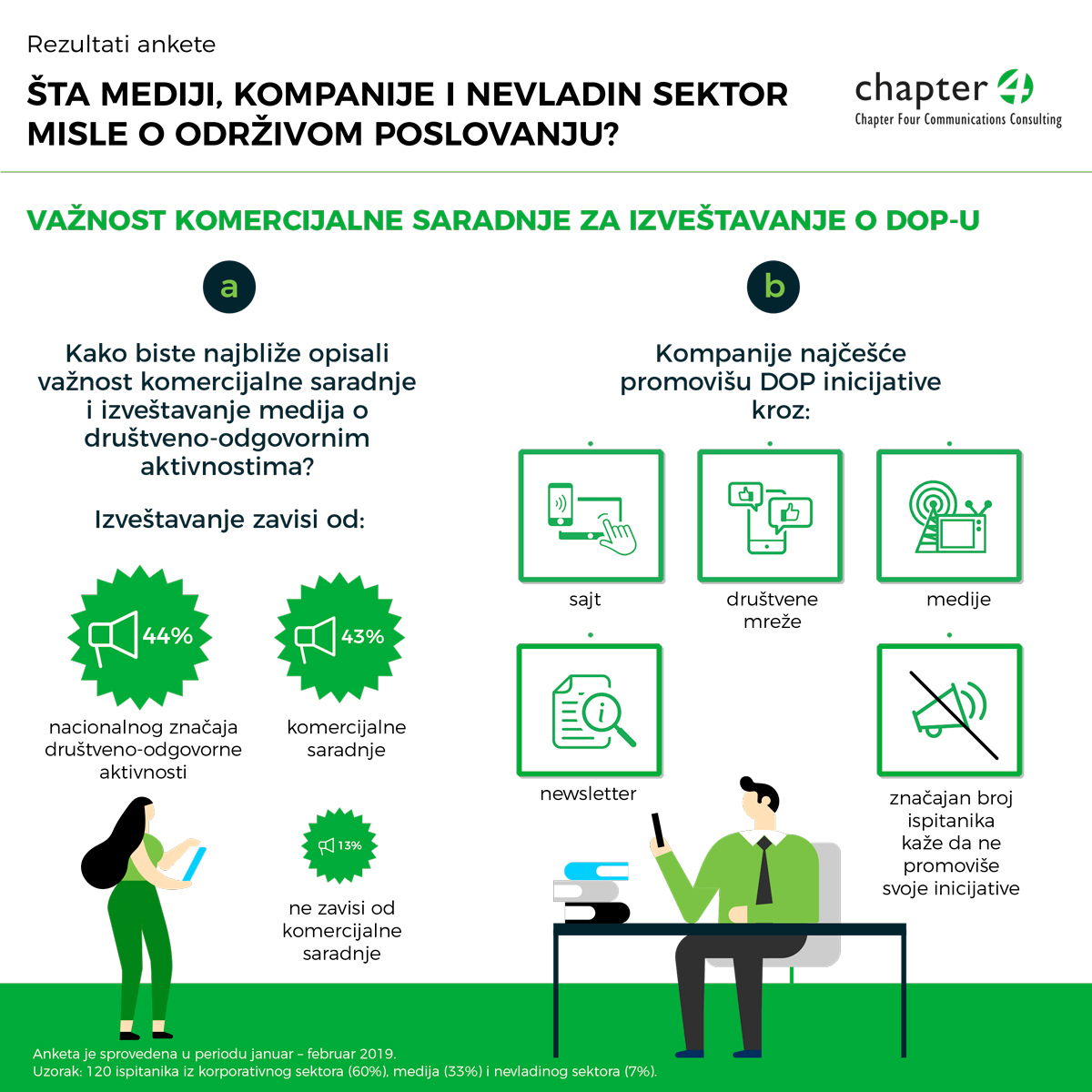Chapter 4, PR agency, conducted a traditional survey within the theme “Perception of the public experts on sustainable business“. The respondents were from the corporate sector (59.6%), media (31.3%), and non-governmental sector (9.1%), and the results showed the status of perception on topics of social responsibility and sustainable business participated in the survey, and the results showed the status of perception of topics of social responsibility and sustainable business. They additionally pointed to the space for improving the understanding of these topics and their connections with communication and successful business in Serbia.

[SIGNIFICANT FINANCIAL RESULTS AND REGISTRY OF THE COMPANY]
According to the opinion more than seventy percent of respondents, the company’s performance is reflected in good financial results, and two-thirds of respondents believe that the performance reflection is based on the company’s reputation. Respondents are still distinguished by a stable, compact and successful team (47%), a good reputation in the business community (36%), and a self-sustainable model (34%). Only one percent of respondents believe that the success of the company’s operations makes open cooperation with the public sector.

[FLEXIBILITY OF A BUSINESS MODEL MAKES BUSINESS SUSTAINABLE]
More than 50 percent of respondents estimated that a sustainable company’s business is mostly a flexible business model that allows quick adjustment to market changes and needs. In the opinion of the respondents for business sustainability, balanced revenues and expenditures are important, while respecting the principle of equality, only 5% of respondents consider it important.
Also, more than half of respondents consider that the positive influence of companies on significant social issues has a beneficial impact on the development of the company, through better reputation among consumers and the business community. Respondents believe that social responsibility brings greater recognition and contributes to the positioning of the company as a locally relevant partner dedicated to society.

[PROFIT SHOULD NOT BE A MOTIVE]
In an open issue on the topic of corporate social responsibility perception, a large number of respondents agree that the responsibility of companies is reflected in the fact that companies are not motivated exclusively by profits, but by looking at the wider picture and the impact on society and the environment. Among the frequent answers there were also concepts such as ethics, as well as long-term planning, focus on people, the well-being of employees and their families, as well as the preservation of the environment.
More than ninety percent of respondents agreed that companies invest more in short-term projects, and that they are from the areas where the most attractive promotion of sports and ecology is being invested, followed by promotion of charity (29%), proactive investment in health care – equipping health institutions (26%) and reactive – treatment of patients (23%).
According to the perceptions of the respondents, the media mostly report on the donations and sponsorships of companies that are big advertisers, mostly to sports topics, followed by investments in the environment, equipping schools, hospitals and public areas.

[MEDIA (NO) REPORTS ON SOCIAL-RESPONSIBLE THEMES]
When it comes to the connection between commercial cooperation and media reporting, opinions are divided, so almost the same percentage of respondents think that reporting depends on the activity and national significance of the socially responsible activity (44%), and that reporting on socially responsible activities is not without a commercial cooperation (43%).
[CONCLUSION: AREA FOR IMPROVEMENT]
The status of perception on the topic of sustainable business and corporate social responsibility in Serbia shows us a place for improvement on both sides.
On the one hand, the position of a significant number of media representatives is highlighted which question the sincerity and the importance of socially responsible campaigns, mentioning that they use them as a way of their promotion and part of PR activities.
On the other hand, expectations from companies are high. Partners, customers, consumers, fellow citizens … all expect their (favorite) brands and companies to contribute consciously and consciously to the overall socio-economic well-being, proactively and in line with the real needs of the society.
At the same time, representatives of the corporate sector consider that the media very rarely self-report on these topics, and that media reporting is based on content posted by companies, whether it is a paid or unpaid media space.